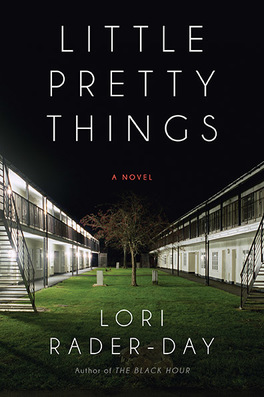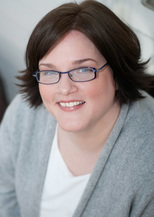|
Hmmm.....what should I be watching? It's a Friday night, and I feel like starting a new mystery or crime-related series on TV, but I think I've run out of options. Can that be true? (Note: I never really watched classics like Perry Mason, Murder She Wrote, or Magnum PI and sometimes I wonder if it's too late to watch them now. What do you think?) I've listed my favorites below: So, what am I missing? All-time Favorites:
Enjoyable Mystery-Themed Shows I would watch again:
Honorable Mentions that May Not Pass the Test of Time (I don't want to re-watch to find out!)
Mysterious Not-Exactly-Mystery Mysteries that I Enjoy:
What about you? Which are your favorite television crime/mystery shows? Is it too late for the classics? Any recommendations for me?
8 Comments
 A head-scratcher here... Recently, a friend of mine lamented on Facebook that she had just received another rejection to her agent query--and was clearly getting frustrated--a state to which I could relate. I made some sort of sympathetic comment about hanging in there, that every author experiences rejection, and to keep persevering. Or maybe even start a new project and set that one aside for a while. Platitudes perhaps, but sincerely meant. Well, I was quite surprised when other people jumped all over my comment, saying that rejection should be celebrated and that I was in the wrong for expressing sympathy. That rejection wasn't supposed to be viewed negatively. Now, I do understand about learning from feedback, no matter how negative, but celebrating rejection seems counter-intuitive. Giving yourself permission to take risks, permission to fail--these are things I believe in too. But permission to celebrate rejection and failure, as if these are the expected end products of a writer's journey--that I can never endorse. (Unless of course one wishes to remain unpublished, than by all means, celebrate rejection.) I thought this was an isolated incident, until I read a piece today by author Bryan Hutchinson, who talked about being wary of the rejectionists: "There’s a new bandwagon in the writing community, actually, it’s in nearly every community. The trend dictates that it’s okay to fail, in fact, it’s not just okay – you should expect to fail. And if you’re not careful you might jump on, tricked into not living your passion and not striving to achieve your goals." I could not agree more. Over the last few years I've had the good fortune of being able to spend a lot of time with other published authors--at conferences, at bookstores, or just over a drink--and one thing that still amazes me is how hard every single one of them had to work to get to where they are. I don't know a single author who doesn't have stacks of rejections and years--even decades--of toil, heartbreak, and anguish behind the image they present to the public, no matter how successful they appear now. Striving to get an agent, striving to get a publisher, striving to get the next contract, striving to develop a readership base...its all there. Every author I know says persistence and determination (and yes, maybe a lucky break) are crucial. We may cope with rejection in different ways, but the common element seems to be to grit your teeth and move forward and just...keep...trying. (I'm not saying this has to be done without copious amounts of ice cream, or alcohol, or rejection letter bonfires...) Simply speaking: There are no overnight successes. Just look at Jenny Milcham's fabulous Made it Moments blog and read through the inspirational stories there. No author's "Made it Moment" is the same, but the sense of perseverance is ever present. (Heck, check out Jenny's own story--she's incredible). Bottom line:
Rejection, yes it happens. It's painful, it hurts, its part of a writer's journey. LEARNING FROM REJECTION (or FAILURE)=GOOD THING. But CELEBRATING rejection, as if rejection should be the end in itself?!... NO! That's when dreams die. After my kids go to bed tonight, I'm going to be sinking into a novel that I've been looking forward to reading since I first heard about it-- Lori Rader-Day's, Little Pretty Things. In preparation I invited Lori to join me on my blog today and answer a few questions about her second novel, to be released July 7, 2015 from Seventh Street Books. But first, the official blurb:  OLD RIVALRIES NEVER DIE. BUT SOME RIVALS DO. Juliet Townsend is used to losing. Back in high school, she lost every track team race to her best friend, Madeleine Bell. Ten years later, she’s still running behind, stuck in a dead-end job cleaning rooms at the Mid-Night Inn, a one-star motel that attracts only the cheap or the desperate. But what life won’t provide, Juliet takes. Then one night, Maddy checks in. Well-dressed, flashing a huge diamond ring, and as beautiful as ever, Maddy has it all. By the next morning, though, Juliet is no longer jealous of Maddy—she’s the chief suspect in her murder. To protect herself, Juliet investigates the circumstances of her friend’s death. But what she learns about Maddy’s life might cost Juliet everything she didn’t realize she had. Can you tell us a little about Little Pretty Things? Little Pretty Things features Juliet Townsend, a not-quite-30 woman stuck in her hometown and in a bad job, cleaning rooms at a low-rate roadside motel where only crackpots and cheapskates stay. Then her former best friend and high school track team rival shows up—rich, beautiful, and everything that Juliet isn't—and checks in. What could have been a reunion takes a turn when Juliet discovers her friend's body the next morning. The book is about women's friendships, competition, and growing up, finally, long after you should have. Was it easier, harder or about the same as writing your first novel, The Black Hour? (What I’m really curious about is whether this was a similar process for you, or different?) I started Little Pretty Things back before my first novel was anywhere close to published, so I had a running start, but then I realized how much work publishing and promoting a novel was. The drafting part of Little Pretty Things got hung up a bit while I figured out some things, and then my agent sold the second novel before it was done. So in the end I had to write to a deadline for the first time. It was a little challenging for me, but I did learn some things about my own process and, due to my day-job schedule, when in the year's calendar it's best for me to be drafting and when it's best to be editing. Hoping to put some of that self-knowledge to work on my next book, which I'm writing for release next summer. How does your chambermaid compare to my chambermaid? Well, my chambermaid is in modern times, so she's very free to move around as a woman in society—but she really doesn't. Juliet is much more timid, in the beginning, than Lucy is in her situation. What they have in common is that they both won't stay chambermaids for long. (I was just joking when I asked this question, but thanks for the thoughtful reply!!!-SC) What kind of research did you have to do for this book? Well, I've never been a cleaner of any kind, so I read a book written by someone who had worked on the staff of a hotel. Luckily Juliet Townsend isn't much of a cleaner, either, so I didn't have to know how to do the job well. The other topic I had to learn about for Little Pretty Things was running. I was a runner for about five seconds over ten years ago, but I was never a high school track runner. I wrote the book as well as could, using good guesses, and then asked a friend of mine, a writer as well as a former track team runner, to read the book for gross errors. She said I got it right, and gave me a few additional ideas for opportunities to make things even better. I don't have the research background you do, Susie, so I don't mind stabbing into the dark a bit. It's fiction, after all. But I don't want to be wrong about the details that will take readers out of the story and ruin their enjoyment of reading. (Yes...I totally agree! -SC) Thanks Lori, and best of luck!
|
Susanna CalkinsHistorian. Mystery writer. Researcher. Teacher. Occasional blogger. Categories
All
Archives
May 2023
|

 RSS Feed
RSS Feed